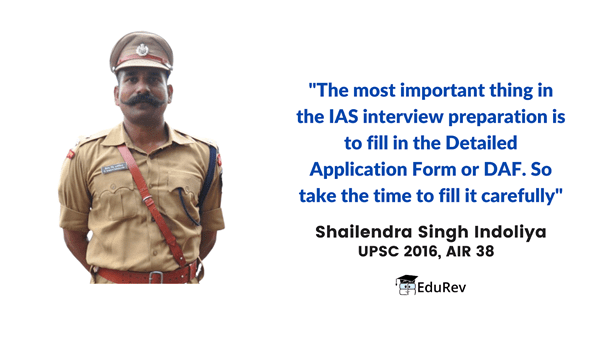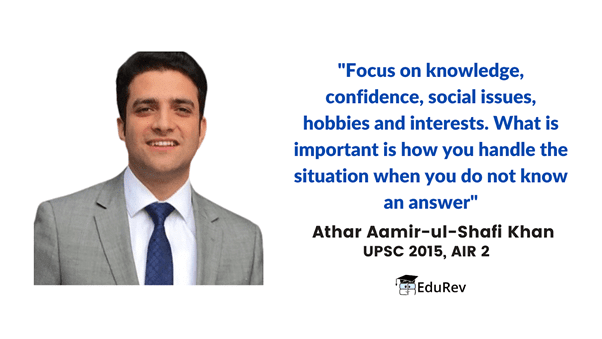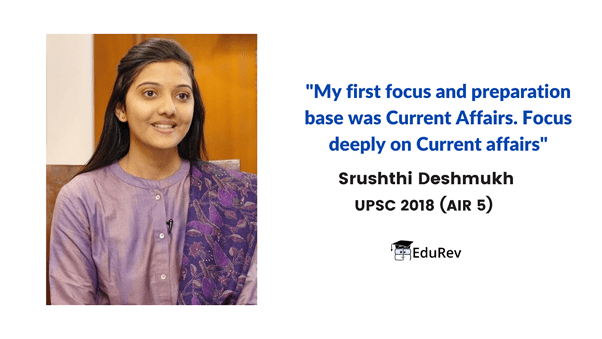How to prepare for UPSC Interview PDF Download
UPSC Interview is the last and final stage of the civil services examination. The interview is not a test of knowledge (they have already tested it in Mains and Prelims) but your innate personality. The process of the UPSC Interview lasts for about 30 minutes and carries 275 marks out of the total 2025 marks. This half an hour process can literally change your life and fulfill your dream of becoming a civil servant. The final merit list is prepared on the basis of marks scored in the main examination and interview. A high score in the interview round can be a huge benefit to the candidates and increase their rank and chances of getting a better service. The interview is not a test of knowledge (they have already tested it in Mains and Prelims) but your innate personality.
Broadly, four types of questions are asked in the UPSC interview:
Profile Related | Name, birthplace, educational background, professional background, hobbies, and interest area |
Current Affairs Related | Opinion based on the current affairs topic of about three months. For eg. What are your views about the efficiency of containment of COVID-19 by India? |
Situational Questions | This question is asked to assess your credibility as a bureaucrat or how efficiently you’ll be able to deal with the ground situations. For eg. What will be your focus area if you’re posted in XYZ district as a district collector. |
Behavioural Questions | This type of question is generally asked to assess the behaviour aspect of your personality, whether you’re nervous or confident while answering the questions put across by the board. |
Importance of Detailed Application Form (DAF) for IAS Interview

It is very important to know each and every element of your Detailed Application Form thoroughly to face the UPSC interview questions. It is the source of information that the panel has about you which serves as the motivation for all the primary questions that are asked in the UPSC interview. Hence, it is extremely important to fill the detailed application form wisely and then, to prepare it thoroughly.
Topper Recommended Tips for IAS Interview Preparation
Here are the top ten UPSC interview preparation tips that are recommended by our previous years’ toppers:
1. Prepare the elements of your DAF
From the meaning of your name to what are the famous elements of your hometown, everything that you have filled in the DAF can be asked during the interview. Hence, read the form multiple times, jot down everything that can be asked and prepare short answers to each of those questions.
2. Opinion on contemporary topics
Prepare the current affairs of about three months in such a way that you’re able to answer questions concerning the current topics in a brief and succinct manner. Showcase your positive attitude while answering those questions.
Anudeep Durishetty said in an interview, for instance, for a question like: “Do think our country needs smaller states for better governance?” When say a simple yes or no, it doesn’t say much about you. What led you to say ‘yes’ or ‘no’ is paramount.
My answer would have been:
“Yes, ma’am. I feel that smaller states are easier to govern because it brings administration closer to the people. For example in my own state, previously, districts and mandals were so huge that the Collector didn’t have much time to physically visit and oversee developmental works in my mandal. Now with smaller state and smaller districts, projects are expedited because collectors can come to visit regularly and monitor projects better. Grievance redressal is also faster now. So from my experience, I believe smaller states and smaller districts are better for the country.”
(This answer conveys to the board that: first, you have a reasoned opinion, and second, you are aware of how the administration is working in your native place. This is how interview answers are different from Mains. In Mains, you state the opinion of some committee or ARC or some expert to argue a point. But in the interview, your answers must be more personal. It’s your opinion and reasoning that counts.)
3. Answering situational Questions
You should know what are the legal powers and capabilities of an IAS/IPS/IFS officer. The questions that are asked must be answered in such a way that you’re not going out of the way to tackle the situation. Your answers must be within the ambit of the constitutional power that your profile holds.
4. Answering behavioural questions
Maintain your calm and compose while answering the questions, be confident, and do not beat around the bush if you do not know any answer. You can simply pass the question and say, “I will have to read more on it to answer this question, I’ll have to pass it for now”.
Eg: To a question of what must be done to tackle gender bias, don’t say ‘Sir, we need women empowerment, inclusive growth and a participative approach. All this mumbo-jumbo doesn’t mean anything.
Instead, say ‘Sir, we need to provide good education to the girl child, strengthen our policing to ensure women safety, encourage more women in politics— from panchayats to the parliament, and support women SHGs in a big way. These are some of the few steps we can take to build a gender-just society” From here they can branch off to either of the sub-points you had mentioned.
5. Know your district and state
Questions may be asked about the district and state. Collect details about your birthplace. Know the problems in your village or city. Be prepared with solutions as well.
6. Be careful with the choice of words
The interview panel is more interested in how you’re speaking and your selection of words to put across your thoughts; hence, try to be articulate while answering the questions.
7. Revise your optional subject
It is seen that many candidates tend to neglect their optional subject after UPSC CSE Mains. But UPSC interview panel may ask questions from your optional subject on the interview day. Brush up on recent happenings related to your optional subject.
8. Prepare well for your hobbies
Very often this is the first question the UPSC interview board ask, many times in a light mood. Make sure you start well. Don’t give cliche answers. Hobbies help the interviewer to understand the personalities of candidates. Keep practising your hobbies till the last week before the UPSC interview.
9. Do not lie
It is one of the extremely important thumb-rule for an interview! Do not fabricate your answers with false information, most likely, they will know you’re lying and will catch you there and then!
10. Mock Interview
Rehearsals with the mock interview before the final interview will help you in avoiding mistakes. Expert mentors and friends can help you with that.
11. Don’t stop reading newspapers
Candidates often stop reading newspapers once the UPSC main exam is over. But, information about current happenings is very important for the IAS interview, just like the UPSC main exam. Have a general idea about the major happenings for the last one year. Also, be familiar with the headlines and stories of the newspapers on the interview day.
12. Learn to give balanced answers
Your views should be balanced and impartial. This does not mean that you should not take a stand. Ideally, you should be without any political or social biases. Once you take a stand on controversial topics, be prepared with your justification for the same. Don’t give sweeping generalizations without a proper base.
Let’s say if they ask about the Aadhar debate, my answer would have been:
“Sir I believe Aadhar and privacy is not a zero-sum game. We need both Aadhar and the protection of individual privacy (my opinion stated upfront). Currently, the debate is skewed either as only Aadhar or complete privacy. But we need more nuance.”
And from here, if they want, they might ask follow-up questions on data breaches, benefits of Aadhar, privacy law etc. which you must be comfortable with. So for contentious topics that are in news, prepare such balanced opinions.
13. Dress Neat and Comfortably
You should look presentable on the day of the interview, hence, dress in formal attire. For men, a light-colored shirt and dark trousers should give a professional appearance. A simple churidar or saree is recommended for women aspirants.
14. Document-Check
It is important to do a document check before to avoid the last-minute rush. Ensure that you’ve all the required documents ready and assembled in one file.
15. Have a good sleep
Don’t stay awake stressing too much about the interview, it might reduce your efficiency. Have a good sleep the night before and avoid taking unnecessary stress!
FAQs on How to prepare for UPSC Interview
| 1. How can I prepare for the IAS interview? |  |
| 2. What are some frequently asked questions in the UPSC interview? |  |
| 3. How can I answer interview questions effectively? |  |
| 4. How important is staying updated with current affairs for the IAS interview? |  |
| 5. Are coaching institutes necessary for IAS interview preparation? |  |














